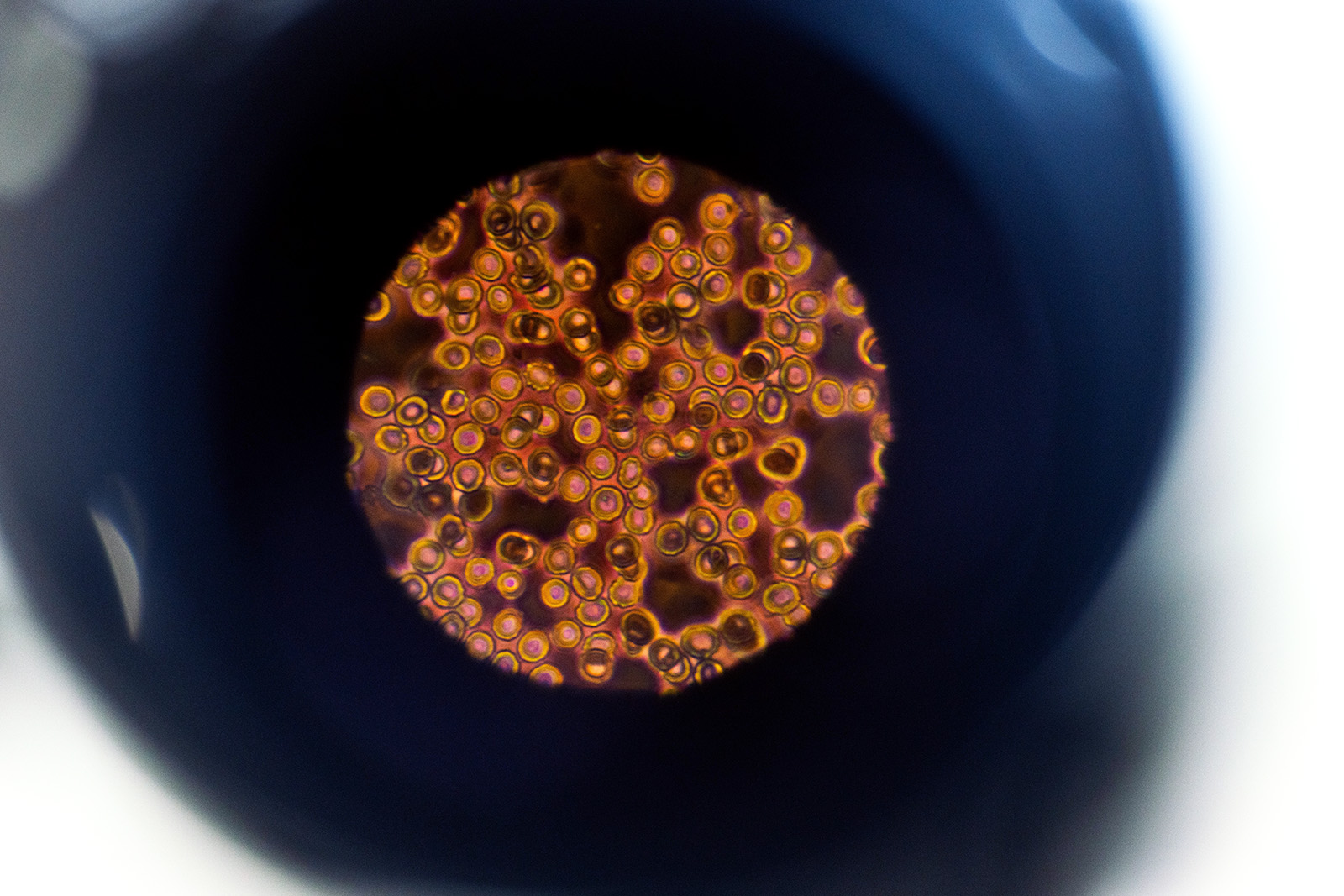COVID-19 Is Threatening the Progress of Clinical Trials

A microscope showing blood cells. The global recession will put pressure on already strained health care budgets, and governments will continue to look for cost savings, bringing clinical trials in rare diseases to a pause.
Photo: Unsplash
The financial impact of the COVID-19 pandemic presents a potential risk to the future of clinical trials in rare diseases. Rare diseases by their nature are not very prevalent in the population, therefore, any treatment for a rare disease will only have a small number of beneficiaries.
In addition, so-called orphan drug development takes around 18% longer from first patent filing to product launch than the average time required for all new drugs. As such, the pricing models around rare disease treatments have always been a challenge for the pharmaceutical sector, and COVID-19 has exacerbated this problem.
Clinical trials are the engine room that powers companies’ ability to deliver new treatment options to patients. Clinical trials in rare diseases are funded by pharmaceutical companies, investors, the public sector and patient organizations themselves. COVID-19 will have a financial impact on all of these groups, and prioritizing areas for funding will entail difficult decision-making.
Greater Risk Aversion in Life Science Sector
The global recession will put further pressure on already strained health care budgets, and governments will continue to look for cost savings. This means the price of pharmaceuticals will also be scrutinized. Companies will be looking at the potential return on investment of conducting research in this space and weighing the likelihood of reimbursement from government payers. For the same reasons, they might also struggle to secure external funding, for example, from venture capitalists.
Smaller companies may decide that it is not worth the investment risk. This, in turn, could mean that we see a concentration of rare disease research being done by the larger pharmaceutical companies, which can offset losses from other parts of their business or portfolio, rather than the existing diverse range of biotechs who are leading in this sector.
Uncertain Investment from Patient Organizations
A significant amount of COVID-19 research funding has been delivered by governments and supranational organizations, such as the European Commission, which inevitably means that there will be less research funding available for other diseases. The focus on COVID-related research doesn’t seem to be slowing, and until we get a vaccine or a treatment, this might not change.
Patient organizations are another source of funding for clinical trials, particularly in rare diseases, where conditions are often inherited or affect the very young. A great example of this can be seen in alkaptonuria, a rare genetic metabolic disorder characterized by the accumulation of homogentisic acid in the body. This causes damage to cartilage and heart valves, as well as precipitating as kidney stones and stones in other organs.
In the short term, the impact of COVID-19 will likely be a reduction in innovation in the rare disease space.
The Alkaptonuria Society initiated the DevelopAKUre program, a series of major international clinical trials run by a consortium of 12 European partners. It studied the effectiveness of a drug called nitisinone, in treating AKU. The DevelopAKUre clinical trials finished in 2019, and the company that makes the drug is currently awaiting a decision from the European Medicines Agency on a licence for the treatment of alkaptonuria.
However, many charities and patient organizations are deferring upcoming grant rounds and withdrawing future trial funding, due to uncertainty of incomes. These organizations have been particularly hard hit by the pandemic, which has triggered reduced capacity for fundraising, coupled with a surge in demand for their services from patients who are looking for guidance and support to help them through the crisis. It is unlikely that these organizations will be able to prioritize clinical trials at this time.
Greater Regulatory Flexibility
There have been specific proposals brought forward to support and quicken COVID-related research. On June 17, 2020, the European Commission presented a European strategy to accelerate the development, manufacturing and deployment of vaccines against COVID-19.
Part of this strategy adapts the EU’s regulatory framework to the current urgency and makes use of existing regulatory flexibility to accelerate this development, while maintaining the standards for vaccine quality, safety and efficacy. This could be good news for research and development in rare diseases.
The same arguments used in rare diseases, which focus on the need for urgency in getting new treatments approved and to patients, are now reflected in the response to the pandemic. If some of these approaches become permanent changes in the way clinical trials are conducted in the EU, clinical trials could be sped up and some of the risk transferred from industry to public authorities. This would be in return for assuring member states of equitable and affordable access to treatments.
Additionally, there are treatments for rare diseases being tested to see if they could have a benefit in the management of COVID-19. This could also help in our longer-term understanding of some of these treatments and therefore speed up their availability in rare diseases.
The Impact Now and in the Future
In the short term, the impact of COVID-19 will likely be a reduction in innovation in the rare disease space. The diversity of companies playing in this area will reduce, with research concentrated in the larger companies who can afford to take the risk.
In normal times, this would spur action from charities and organizations to set up clinical trials because of personal experience, but their capacity to do this presently is limited.
However, the indirect impact of COVID-19 may result in longer-term positives for the rare disease sector, addressing some of the shortcomings of clinical trial setup that have long held back innovation in the area.







